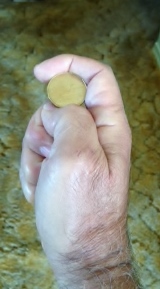 It is not the decision you make that is important, it is the judgement about the decision you made that is important. That judgement is reflected in the actions you take. And, the actions you take determine whether your decision is based on sound or poor judgement. Business and public policy is sometimes murky business. Often decision makers live in the gray zone, or as I like to call it the “amorphous marshmallow zone.” Things are not always as clear as they would like them to be, and this for many reasons. They try to filter out the best alternatives to a difficult situation and at some point after weighing the pros and cons they make a decision. This is where judgement comes in. What is judgement anyway? Judgement could be described as the ability to make “a decision or forming an opinion, objectively, authoritatively, and wisely, especially in matters affecting action; good sense and discretion.” (Dictionary.com). We may have heard the sage dictum that “good judgement comes from experience and that experience comes from the exercise of bad judgement.” Perhaps in time we become wise decision-makers coupled with good judgement. Leaders are assessed not by the decisions they make, but by the judgements they make regarding the choices surrounding the decision. In matters of public policy they are buffered with conflicting political and public opinion. It is not easy to steer a steady course when leaders are caught in a vortex of conflicting opinions. The same is true when business leaders are caught on the horns of a dilemma as they face difficult ethical issues or critical decisions about opposing strategies and tactics. In cases like these emotions usually run high and leaders are asked to make almost King Solomon type decisions. It is in these emotionally charged situations where leaders need to strip away the emotion and make a decision based on their best judgement. Judgement then has an emotional quality to it. Making a judgement requires a certain amount of emotional restraint or emotional intelligence as Peter NG Kok Song once said. The more we can detach ourselves emotionally from the decision the more we can look at it objectively. The more emotion we have invested in it, the more difficult it is to divest ourselves from our emotions. How do we get out of this conundrum? I think there are two approaches and they could easily be viewed as two sides of the same coin. The first approach suggests we take time out and emotionally detach ourselves from the situation through meditation. This sounds like a contradiction, but meditation allows us to free our mind from distracting thoughts and at the same time gives us room to think more clearly. By freeing the mind of emotional turmoil we give it space to think more clearly. By thinking more clearly we have a greater chance of making better choices. The second approach suggests we clarify the principles that impinge on the decision and then we make the decision based on those principles. This requires leadership based on values that reflect a commitment to service and the common good for the public, customers and employees. Value based leadership reflecting common principles allow us to make better choices outside of the realm of ideology and the pressures of strong egos, including our own. Meditating is a solitary process whereas arriving at common principles is an engaging process. Through meditation we clarify our own thinking. Through engaging others, we arrive at common principles for the higher good. That is why I suggest the two approaches are two sides of the same coin. Both are often required to make a sound judgement call when confronted with difficult and murky decisions. It is not just heads or tails by the flip of the coin. I find poor judgement often occurs when people make quick decisions based on emotion and impulse. I have witnessed this in my own behaviour and in working with others in business and public service. We refer to this as a “knee jerk reaction” to an emotionally charged situation, or trying to find an “easy way out” when much more consideration and circumspection is required. Take the time to make the best judgement call not the most expedient and let your actions reflect sound judgement. You're going to come across people in your life who will say all the right words at all the right times. But in the end, it's always their actions you should judge them by. It's actions, not words, that matter. ― Nicholas Sparks, The Rescue Question: What do you do when you are faced with difficult choices? AuthorRichard Fontanie, MSW. FCMC, From the FontanieLearningSolutions Archives..
0 Comments
Leave a Reply. |
Categories
All
Archives
June 2024
|


 RSS Feed
RSS Feed


